4 July - 8 July 2022
Russia, China & US cooperation is vital to protect Earth and make space the benefit for all humankind
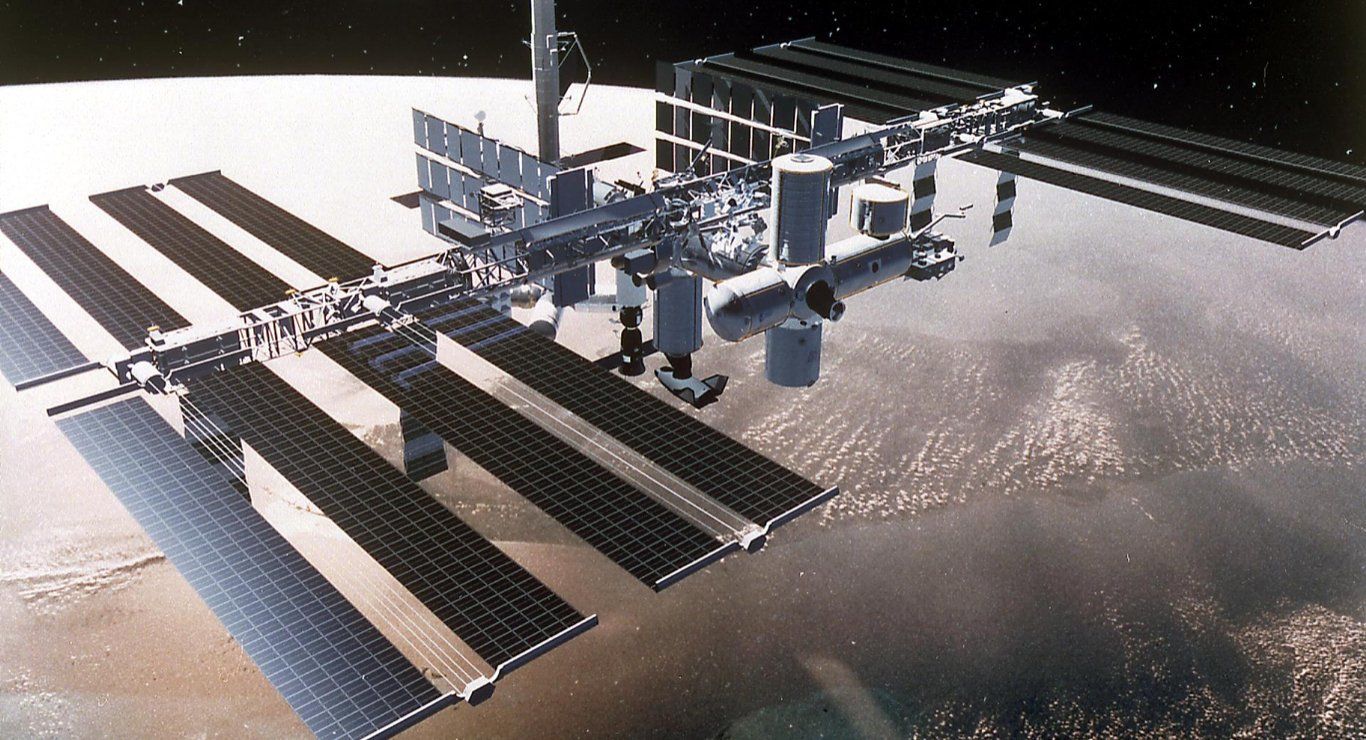
ISS is evidence that cooperative projects are possible despite differences (image: NASA)
With the space sector moving at a rapid pace, it’s very exciting to see new milestones being reached each week. Long-term goals for space exploration may have seemed like ideas from the realm of fiction not so long ago, but the past weeks of seen tangible milestones being achieved. Rocket Lab last week took a giant leap forwards for commercial space, and marked the beginning of the US-led mission to take humans back to the moon, for good.
But we’ve also witnessed the ongoing tensions building between the US and China, and the ongoing Ukraine crisis affecting cooperation in space. Whilst relations between these heavyweights continue erode, there comes also the threat of space becoming politicised, stifling innovation and our quest for peaceful uses of outer space.
Is there still hope for peaceful cooperation in space, or must the world find a new way forwards to guarantee our long-term ambitions for peace and prosperity for all humankind?
Global innovation providing huge opportunities, and will only succeed through peaceful, cooperative space
It’s through global space sector innovation that humankind will succeed in befitting from outer space exploration. No longer does space only belong to a few nations. With this comes the necessity to cooperate in space, in order to bring about the best technological outcomes, and also to maintain peaceful relations.
The ESA has this week announced their intentions to deliver its own reusable rocket booster technology, similar to that of SpaceX. The Ariane-led project will bring together industry, research institutes and start-ups, providing a boost to European cooperation in space. Also, despite a brief communications disruption, the CAPSTONE mission lunar orbiter mission is apparently in good condition, marking an ongoing success for the mission, and collaboration between private launch provider Rocket Lab and aerospace company Advanced Space.
Rocket Lab will also carry out two responsive launches on behalf os the US National Reconnaissance Office (NRO). Responsive launch capabilities are seen as vital by the US government, in being able to provide quick launch capabilities at short notice, and offering tailored launch solutions. The commercial sector will be driving force behind responsive launch capabilities.
China have also made strides in establishing their commercial space sector. Chinese startup, Landscape, will be working towards providing their Zhuque-2 rocket, it being the first liquid-propellant launch for Chinese commercial space. Furthermore, work has also begun on in the Chinese city of Wenchang on China’s first launch site dedicated to commercial space activities, being carried out by the Hainan government and three State-owned space conglomerates
Public-private sector cooperation is becoming increasingly important, and governments continue to rely on private innovation, and also new and younger talent entering the field. For example, NASA’s LUNABOTICS competition recently brought together students and their one-of-a-kind robots to extract simulated lunar regolith, in preparation for missions to mine the moon and Mars.
The conditions that leaders set out now will dictate shape of the industry in the future, and will be critical in attracting investment and talent to join the space sector, which clearly, it so desperately needs.
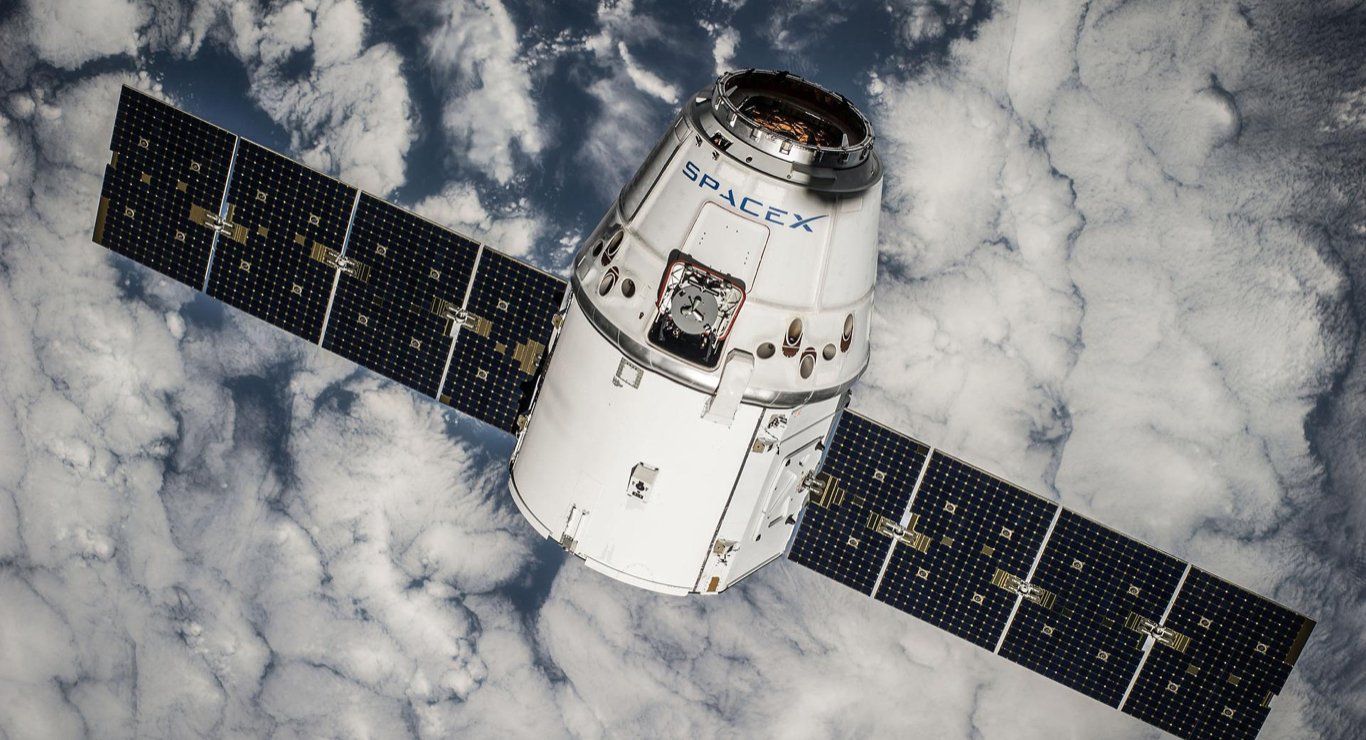
US concerned that China could take down their satellites in future (image: Pixabay)
Can space powers put politics aside and cooperate in space, for the benefit of humankind?
The biggest threat to peaceful space is undoubtedly international tension, particularly that between the US, China and Russia. NASA administrator, Bill Nelson, this week declared that China may be intending to militarise space, and said that there is a new “race to space”, and that China may be learning how to destroy other nations’ satellites.
This was not received well by China, who responded by saying that Bill Nelson was lying, and that it is the US who are using space to extend their military. China is also working on their own alliance, as an alternative to the US-led Artemis Accords. The International Lunar Research Station (ILRS) has the support of Russia, and China has been trying to secure the support other nations, including Laos, Vietnam and Cambodia.
Russia has also brought Earthly politics into the space sphere this week, with Russian cosmonauts appearing on the ISS carrying the flags of the Ukrainian separatist regions of Luhansk and Donetsk. There also appears to be further deterioration of relations between the UK and EU regarding the European Horizon investment programme, due to the ongoing dispute over Brexit and the Northern Ireland protocol.
Whilst it’s sad and disappointing to see cooperation in space being so badly affected by events on Earth, we do know that nations have previously been able to overcome these divisions and work together, most notably with the US and Russia on the ISS. Also, despite the emergence of two apposing global space alliances, we also know that they both claim to be abiding by the principles of the Outer Space Treaty and striving for peaceful space. Could there still be hope for unilateral cooperation in space?
Who can break the stalemate? The opportunities are too important to miss
Oxford University graduate Keith Lamb wrote in his opinion in the CGTN that the dangers of space (i.e. asteroid strikes) are too great in order for China and the US to feud, and that China only want equality. This could be the case, and that the US may be overly sceptical about the Chinese longing to steal US technology and militarise space. On the other hand, it was the US this year who took the lead in banning anti-satellite testing, with New Zealand this week symbolically joining them. With both sides claiming to commit to such similar morals, it make take something big in order for one side to bury the hatchet and make peace. The US still also have to consider the Wolf Amendment, legislation in place preventing almost any kind of US governmental cooperation with China in space.
It could be argued that it is the role of the UNOOSA to enforce the principles of the OST, and prevent any kind of heightening of tensions in space. Whilst the UN does have the mandate of the vast majority of nations signing up to the OST, it is not their role to forcibly intervene in such matters, and it’s vital that they maintain politically neutrality.
Maybe new and emerging space powers could take it upon themselves to negotiate peace between the superpowers? Nations such as Australia, the UK and Korea will play an increasingly influential role in the future. However, many of these nations are already being quickly signed-up to the US Artemis Accords, making it unlikely that China or Russia would hold any trust in them as a neutral partner.
Then what about the role of the commercial sector? As we said earlier, the conditions that are made now will dictate their futures, and in turn, the future of the space sector. The threat of conflict will only deter investment and new talent in the industry, and without them, we will never achieve our long-term goals in outer space or enable maintain peace. So perhaps businesses could unite and provide the voice that we need to hear, in order to promote the importance of neutrality in space, and secure a cooperative and peaceful future.
External Links
This Week
*News articles posted here are not property of ANASDA GmbH and belong to their respected owners. Postings here are external links only.
Our future in space
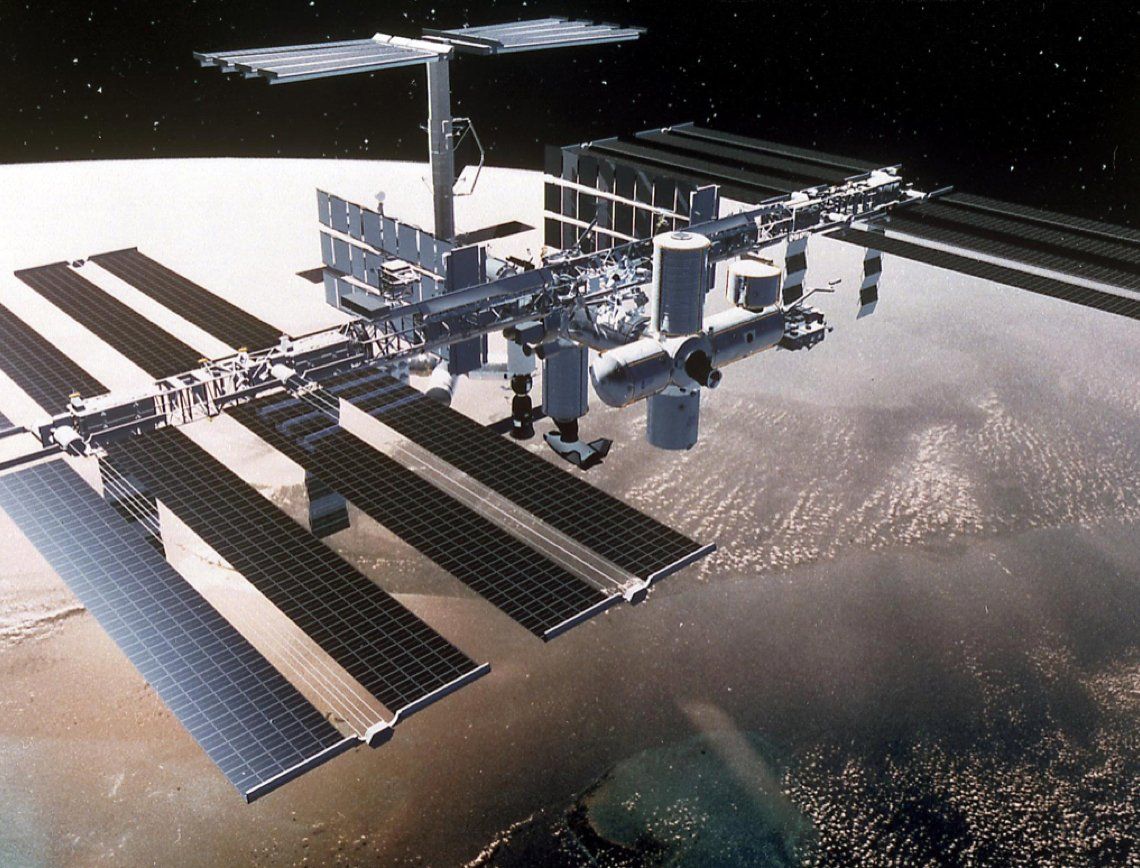
ISS is evidence that cooperative projects are possible despite differences (image: NASA)
4 July - 8 July, 2022
Russia, China & US cooperation is vital to protect Earth and make space the benefit for all humankind
With the space sector moving at a rapid pace, it’s very exciting to see new milestones being reached each week. Long-term goals for space exploration may have seemed like ideas from the realm of fiction not so long ago, but the past weeks of seen tangible milestones being achieved. Rocket Lab last week took a giant leap forwards for commercial space, and marked the beginning of the US-led mission to take humans back to the moon, for good.
But we’ve also witnessed the ongoing tensions building between the US and China, and the ongoing Ukraine crisis affecting cooperation in space. Whilst relations between these heavyweights continue erode, there comes also the threat of space becoming politicised, stifling innovation and our quest for peaceful uses of outer space.
Is there still hope for peaceful cooperation in space, or must the world find a new way forwards to guarantee our long-term ambitions for peace and prosperity for all humankind?
Global innovation providing huge opportunities, and will only succeed through peaceful, cooperative space
It’s through global space sector innovation that humankind will succeed in befitting from outer space exploration. No longer does space only belong to a few nations. With this comes the necessity to cooperate in space, in order to bring about the best technological outcomes, and also to maintain peaceful relations.
The ESA has this week announced their intentions to deliver its own reusable rocket booster technology, similar to that of SpaceX. The Ariane-led project will bring together industry, research institutes and start-ups, providing a boost to European cooperation in space. Also, despite a brief communications disruption, the CAPSTONE mission lunar orbiter mission is apparently in good condition, marking an ongoing success for the mission, and collaboration between private launch provider Rocket Lab and aerospace company Advanced Space.
Rocket Lab will also carry out two responsive launches on behalf os the US National Reconnaissance Office (NRO). Responsive launch capabilities are seen as vital by the US government, in being able to provide quick launch capabilities at short notice, and offering tailored launch solutions. The commercial sector will be driving force behind responsive launch capabilities.
China have also made strides in establishing their commercial space sector. Chinese startup, Landscape, will be working towards providing their Zhuque-2 rocket, it being the first liquid-propellant launch for Chinese commercial space. Furthermore, work has also begun on in the Chinese city of Wenchang on China’s first launch site dedicated to commercial space activities, being carried out by the Hainan government and three State-owned space conglomerates
Public-private sector cooperation is becoming increasingly important, and governments continue to rely on private innovation, and also new and younger talent entering the field. For example, NASA’s LUNABOTICS competition recently brought together students and their one-of-a-kind robots to extract simulated lunar regolith, in preparation for missions to mine the moon and Mars.
The conditions that leaders set out now will dictate shape of the industry in the future, and will be critical in attracting investment and talent to join the space sector, which clearly, it so desperately needs.
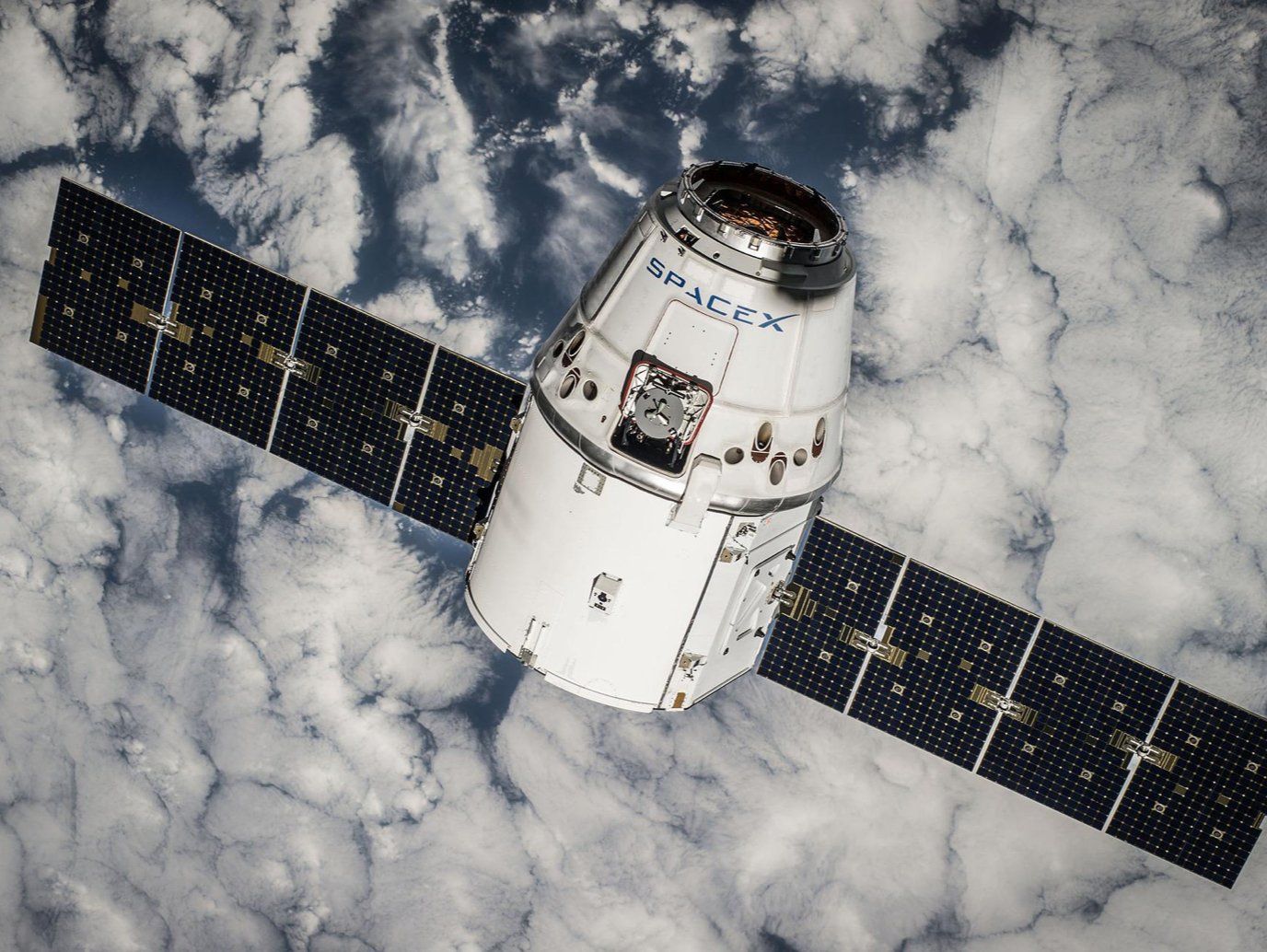
US concerned that China could take down their satellites in future (image: Pixabay)
Can space powers put politics aside and cooperate in space, for the benefit of humankind?
The biggest threat to peaceful space is undoubtedly international tension, particularly that between the US, China and Russia. NASA administrator, Bill Nelson, this week declared that China may be intending to militarise space, and said that there is a new “race to space”, and that China may be learning how to destroy other nations’ satellites.
This was not received well by China, who responded by saying that Bill Nelson was lying, and that it is the US who are using space to extend their military. China is also working on their own alliance, as an alternative to the US-led Artemis Accords. The International Lunar Research Station (ILRS) has the support of Russia, and China has been trying to secure the support other nations, including Laos, Vietnam and Cambodia.
Russia has also brought Earthly politics into the space sphere this week, with Russian cosmonauts appearing on the ISS carrying the flags of the Ukrainian separatist regions of Luhansk and Donetsk. There also appears to be further deterioration of relations between the UK and EU regarding the European Horizon investment programme, due to the ongoing dispute over Brexit and the Northern Ireland protocol.
Whilst it’s sad and disappointing to see cooperation in space being so badly affected by events on Earth, we do know that nations have previously been able to overcome these divisions and work together, most notably with the US and Russia on the ISS. Also, despite the emergence of two apposing global space alliances, we also know that they both claim to be abiding by the principles of the Outer Space Treaty and striving for peaceful space. Could there still be hope for unilateral cooperation in space?
Who can break the stalemate? The opportunities are too important to miss
Oxford University graduate Keith Lamb wrote in his opinion in the CGTN that the dangers of space (i.e. asteroid strikes) are too great in order for China and the US to feud, and that China only want equality. This could be the case, and that the US may be overly sceptical about the Chinese longing to steal US technology and militarise space. On the other hand, it was the US this year who took the lead in banning anti-satellite testing, with New Zealand this week symbolically joining them. With both sides claiming to commit to such similar morals, it make take something big in order for one side to bury the hatchet and make peace. The US still also have to consider the Wolf Amendment, legislation in place preventing almost any kind of US governmental cooperation with China in space.
It could be argued that it is the role of the UNOOSA to enforce the principles of the OST, and prevent any kind of heightening of tensions in space. Whilst the UN does have the mandate of the vast majority of nations signing up to the OST, it is not their role to forcibly intervene in such matters, and it’s vital that they maintain politically neutrality.
Maybe new and emerging space powers could take it upon themselves to negotiate peace between the superpowers? Nations such as Australia, the UK and Korea will play an increasingly influential role in the future. However, many of these nations are already being quickly signed-up to the US Artemis Accords, making it unlikely that China or Russia would hold any trust in them as a neutral partner.
Then what about the role of the commercial sector? As we said earlier, the conditions that are made now will dictate their futures, and in turn, the future of the space sector. The threat of conflict will only deter investment and new talent in the industry, and without them, we will never achieve our long-term goals in outer space or enable maintain peace. So perhaps businesses could unite and provide the voice that we need to hear, in order to promote the importance of neutrality in space, and secure a cooperative and peaceful future.
Share this article
External Links
This Week
*News articles posted here are not property of ANASDA GmbH and belong to their respected owners. Postings here are external links only.
4 July - 8 July 2022
Russia, China & US cooperation is vital to protect Earth and make space the benefit for all humankind
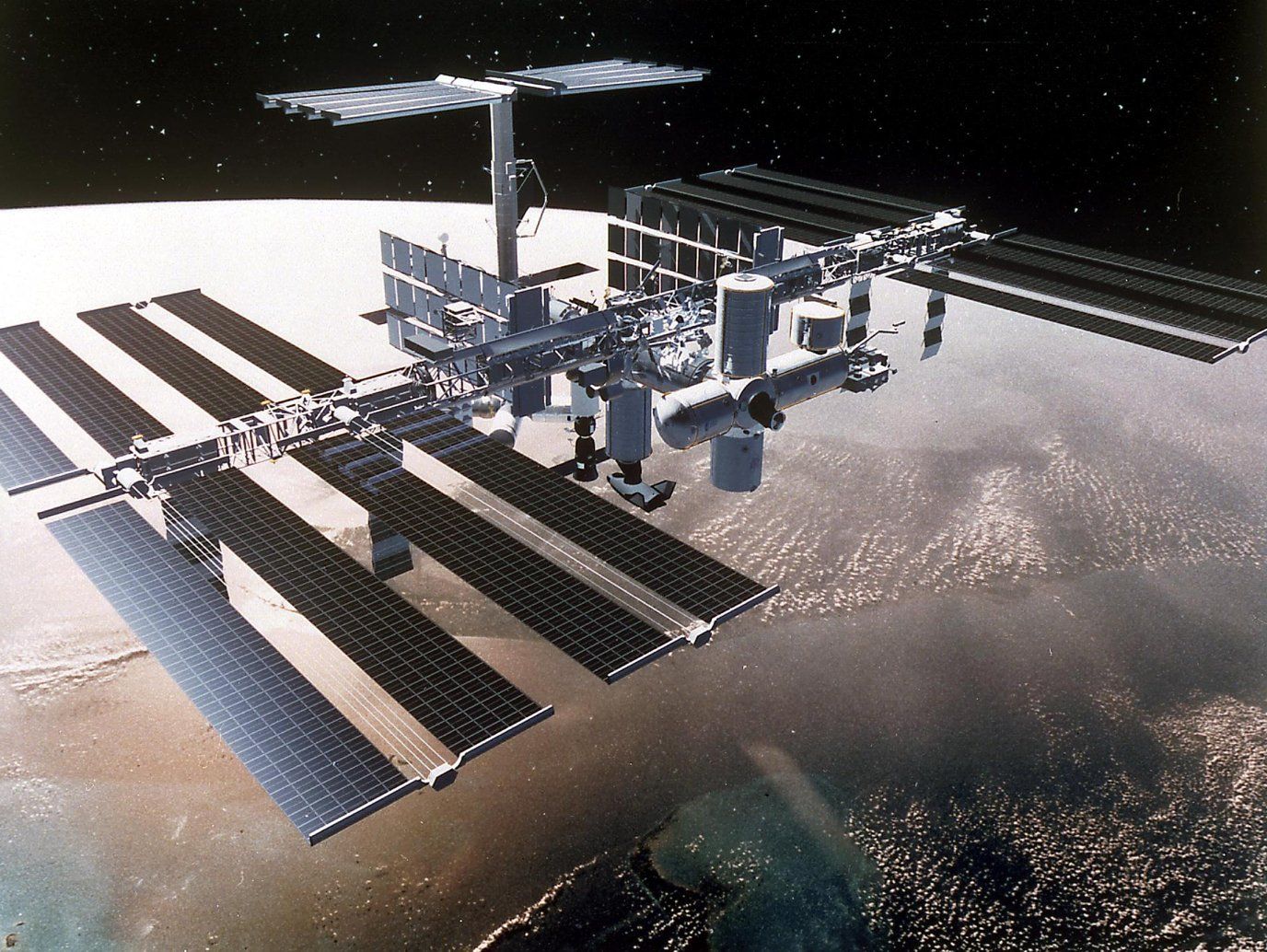
ISS is evidence that cooperative projects are possible despite differences (image: NASA)
With the space sector moving at a rapid pace, it’s very exciting to see new milestones being reached each week. Long-term goals for space exploration may have seemed like ideas from the realm of fiction not so long ago, but the past weeks of seen tangible milestones being achieved. Rocket Lab last week took a giant leap forwards for commercial space, and marked the beginning of the US-led mission to take humans back to the moon, for good.
But we’ve also witnessed the ongoing tensions building between the US and China, and the ongoing Ukraine crisis affecting cooperation in space. Whilst relations between these heavyweights continue erode, there comes also the threat of space becoming politicised, stifling innovation and our quest for peaceful uses of outer space.
Is there still hope for peaceful cooperation in space, or must the world find a new way forwards to guarantee our long-term ambitions for peace and prosperity for all humankind?
Global innovation providing huge opportunities, and will only succeed through peaceful, cooperative space
It’s through global space sector innovation that humankind will succeed in befitting from outer space exploration. No longer does space only belong to a few nations. With this comes the necessity to cooperate in space, in order to bring about the best technological outcomes, and also to maintain peaceful relations.
The ESA has this week announced their intentions to deliver its own reusable rocket booster technology, similar to that of SpaceX. The Ariane-led project will bring together industry, research institutes and start-ups, providing a boost to European cooperation in space. Also, despite a brief communications disruption, the CAPSTONE mission lunar orbiter mission is apparently in good condition, marking an ongoing success for the mission, and collaboration between private launch provider Rocket Lab and aerospace company Advanced Space.
Rocket Lab will also carry out two responsive launches on behalf os the US National Reconnaissance Office (NRO). Responsive launch capabilities are seen as vital by the US government, in being able to provide quick launch capabilities at short notice, and offering tailored launch solutions. The commercial sector will be driving force behind responsive launch capabilities.
China have also made strides in establishing their commercial space sector. Chinese startup, Landscape, will be working towards providing their Zhuque-2 rocket, it being the first liquid-propellant launch for Chinese commercial space. Furthermore, work has also begun on in the Chinese city of Wenchang on China’s first launch site dedicated to commercial space activities, being carried out by the Hainan government and three State-owned space conglomerates
Public-private sector cooperation is becoming increasingly important, and governments continue to rely on private innovation, and also new and younger talent entering the field. For example, NASA’s LUNABOTICS competition recently brought together students and their one-of-a-kind robots to extract simulated lunar regolith, in preparation for missions to mine the moon and Mars.
The conditions that leaders set out now will dictate shape of the industry in the future, and will be critical in attracting investment and talent to join the space sector, which clearly, it so desperately needs.
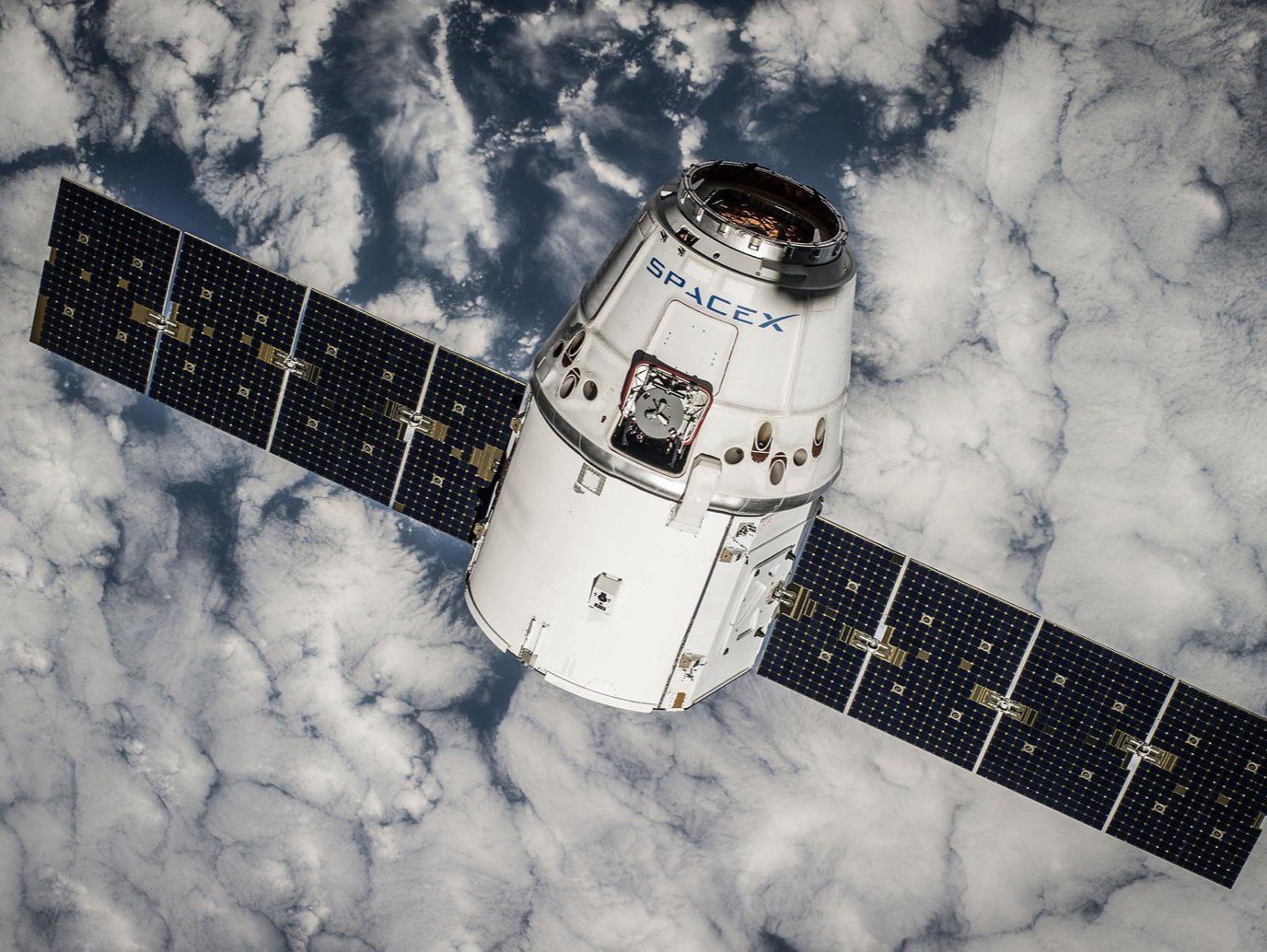
US concerned that China could take down their satellites in future (image: Pixabay)
Can space powers put politics aside and cooperate in space, for the benefit of humankind?
The biggest threat to peaceful space is undoubtedly international tension, particularly that between the US, China and Russia. NASA administrator, Bill Nelson, this week declared that China may be intending to militarise space, and said that there is a new “race to space”, and that China may be learning how to destroy other nations’ satellites.
This was not received well by China, who responded by saying that Bill Nelson was lying, and that it is the US who are using space to extend their military. China is also working on their own alliance, as an alternative to the US-led Artemis Accords. The International Lunar Research Station (ILRS) has the support of Russia, and China has been trying to secure the support other nations, including Laos, Vietnam and Cambodia.
Russia has also brought Earthly politics into the space sphere this week, with Russian cosmonauts appearing on the ISS carrying the flags of the Ukrainian separatist regions of Luhansk and Donetsk. There also appears to be further deterioration of relations between the UK and EU regarding the European Horizon investment programme, due to the ongoing dispute over Brexit and the Northern Ireland protocol.
Whilst it’s sad and disappointing to see cooperation in space being so badly affected by events on Earth, we do know that nations have previously been able to overcome these divisions and work together, most notably with the US and Russia on the ISS. Also, despite the emergence of two apposing global space alliances, we also know that they both claim to be abiding by the principles of the Outer Space Treaty and striving for peaceful space. Could there still be hope for unilateral cooperation in space?
Who can break the stalemate? The opportunities are too important to miss
Oxford University graduate Keith Lamb wrote in his opinion in the CGTN that the dangers of space (i.e. asteroid strikes) are too great in order for China and the US to feud, and that China only want equality. This could be the case, and that the US may be overly sceptical about the Chinese longing to steal US technology and militarise space. On the other hand, it was the US this year who took the lead in banning anti-satellite testing, with New Zealand this week symbolically joining them. With both sides claiming to commit to such similar morals, it make take something big in order for one side to bury the hatchet and make peace. The US still also have to consider the Wolf Amendment, legislation in place preventing almost any kind of US governmental cooperation with China in space.
It could be argued that it is the role of the UNOOSA to enforce the principles of the OST, and prevent any kind of heightening of tensions in space. Whilst the UN does have the mandate of the vast majority of nations signing up to the OST, it is not their role to forcibly intervene in such matters, and it’s vital that they maintain politically neutrality.
Maybe new and emerging space powers could take it upon themselves to negotiate peace between the superpowers? Nations such as Australia, the UK and Korea will play an increasingly influential role in the future. However, many of these nations are already being quickly signed-up to the US Artemis Accords, making it unlikely that China or Russia would hold any trust in them as a neutral partner.
Then what about the role of the commercial sector? As we said earlier, the conditions that are made now will dictate their futures, and in turn, the future of the space sector. The threat of conflict will only deter investment and new talent in the industry, and without them, we will never achieve our long-term goals in outer space or enable maintain peace. So perhaps businesses could unite and provide the voice that we need to hear, in order to promote the importance of neutrality in space, and secure a cooperative and peaceful future.
Share this article
External Links
This Week
*News articles posted here are not property of ANASDA GmbH and belong to their respected owners. Postings here are external links only.



















